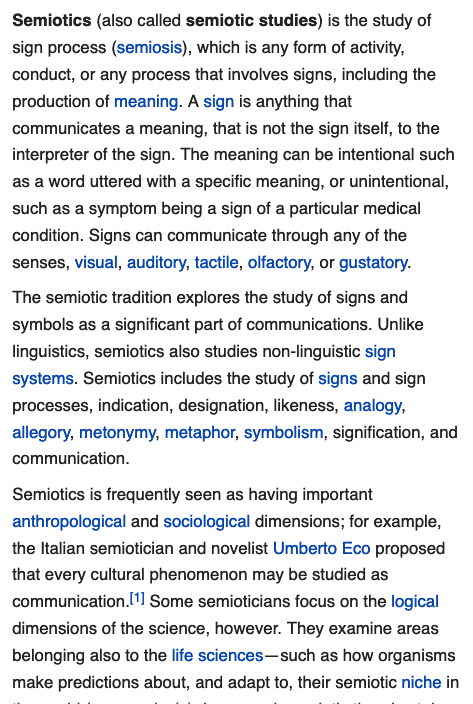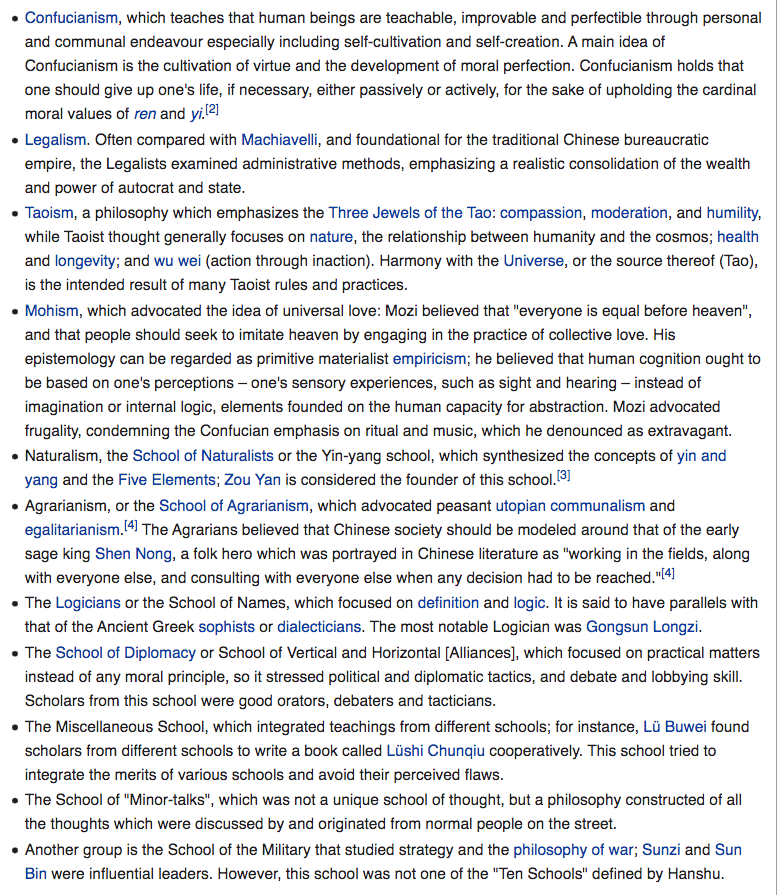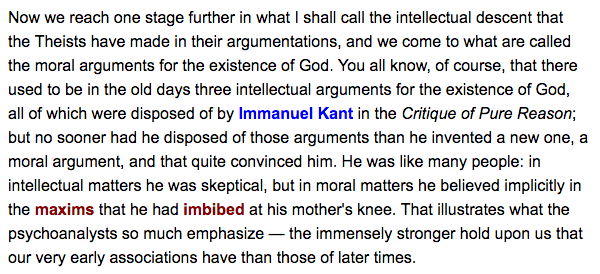Wordy Blog Archive 2020-01
Habeas corpus
Habeas corpus (/ˈheɪbiəs ˈkɔːrpəs/; Medieval Latin meaning “[we, a Court, command] that you have the body [of the detainee brought before us]”)[1] is a recourse in law through which a person can report an unlawful detention or imprisonment to a court and request that the court order the custodian of the person, usually a prison official, to bring the prisoner to court, to determine whether the detention is lawful.[2]
The writ of habeas corpus is known as the “great and efficacious writ in all manner of illegal confinement”.[3] It is a summons with the force of a court order; it is addressed to the custodian (a prison official, for example) and demands that a prisoner be brought before the court, and that the custodian present proof of authority, allowing the court to determine whether the custodian has lawful authority to detain the prisoner. If the custodian is acting beyond their authority, then the prisoner must be released. Any prisoner, or another person acting on their behalf, may petition the court, or a judge, for a writ of habeas corpus. One reason for the writ to be sought by a person other than the prisoner is that the detainee might be held incommunicado. Most civil law jurisdictions provide a similar remedy for those unlawfully detained, but this is not always called habeas corpus.[4] For example, in some Spanish-speaking nations, the equivalent remedy for unlawful imprisonment is the amparo de libertad (“protection of freedom”).
2020-12-16 Wikipedia Habeas corpus


羅生門 Rashōmon (short story)
The story recounts the encounter between a servant and an old woman in the dilapidated Rashōmon, the southern gate of the then-ruined city of Kyoto, where unclaimed corpses were sometimes dumped. The current name of the gate in the story, but not the plot, comes from the Noh play Rashōmon (c. 1420).
The man, a lowly servant recently fired, is contemplating whether to starve to death or to become a thief to survive in the barren times. He goes upstairs, after noticing some firelight there, and encounters a woman who is stealing hair from the dead bodies on the second floor. He is disgusted, and decides then that he would rather take the path of righteousness even if it meant starvation. He is furious with the woman.
But the old woman tells him that she steals hair to make wigs, so she can survive. In addition, the woman who she is currently robbing cheated people in her life by selling snake meat and claiming it was fish. The old woman says that this was not wrong because it allowed the woman to survive — and so in turn this entitles her to steal from the dead person, because if she doesn't, she too will starve. The man responds: “You won't blame me, then, for taking your clothes. That's what I have to do to keep from starving to death”. He then brutally robs the woman of her robe and disappears into the night.
acting, and taint of sjw
just read the entire Wikipedia article on acting. Acting funny, is that the article emphasize heart beat rate increase multiple times, seems out of ordinary. gonna check article history to see what's going on.
another thing odd is that it has a semiotics section, which is a sjw philosophy thing.
semiotics is introduced in 2013. heart beat rate is introduced in 2017.
- soteriology
- mealy-mouthed
- noumenon
- immanence
A history of philosophy without any gaps
someone suggested me this history of philosophy podcast. by Peter Scott Adamson. here's info from Wikipedia:
Peter Scott Adamson (born 1972). professor of philosophy in late antiquity and in the Islamic world at the Ludwig Maximilian University of Munich as well as professor of ancient and medieval philosophy at Kings College London.
he is known for hosting the weekly podcast History of Philosophy without any gaps , which has also been turned into a book series, surpassing 25 million downloads by 2019. The podcast has gone through 350 episodes from Pre-Socratic philosophy up to Renaissance philosophy, as well as special series on Indian philosophy (with co-author Jonardon Ganeri), African/Africana philosophy (with co-author Chike Jeffers), and Chinese philosophy (planned, with co-author Karyn Lai).
- Classical Philosophy
- By Peter Adamson. Volume 1.
- Buy at amazon
- Philosophy in the Hellenistic and Roman Worlds
- By Peter Adamson. Volume 2.
- Buy at amazon
- Philosophy in the Islamic World
- By Peter Adamson. Volume 3.
- Buy at amazon
The Moronicities of Typography: Hyphen, Dash, Quotation Marks, Apostrophe (2007)
Democracy – The God That Failed: The Economics and Politics of Monarchy, Democracy and Natural Order (Perspectives on Democratic Practice) by Hans-Hermann Hoppe Buy at amazon
Anatomy of the State 2014 by Murray Rothbard Buy at amazon
[etymology of desperado https://www.etymonline.com/word/desperado]

- https://youtu.be/8Lw5DVyCWe8
- 欧洲最穷国乌克兰,为何美女逃离到中国做模特?
- Aug 17, 2019
- by Jerry Kowal 我是郭杰瑞

- https://youtu.be/Hq76-XZuVgg
- 街访乌克兰美女择偶标准,很多称中国男生很不错!
- Aug 29, 2019
- by Jerry Kowal 我是郭杰瑞
Call of the Wild by Jack LONDON (1876 - 1916) https://librivox.org/the-call-of-the-wild-by-jack-london-3/
the Barbarism of Specialization (philosophy) (by Jose Ortega Y Gasset)
- Rethinking Writing
- By Roy Harris.
- Buy at amazon
Noted linguist Harris (emer., Oxford) challenges the assumptions underlying traditional Western views of writing as secondary to speech. Harris applies an integrationist approach to writing, a topic in which he has previously established expertise in such works as The Origin of Writing (1986) and Signs of Writing (1995). In the early chapters of the present work, he systematically dismantles the theories of linguists and philosophers beginning with Aristotle (with emphasis on Saussure) whose seminal ideas about language as essentially oral reduced the status of writing to symbol of speech. Harris finds fault in Saussure's failure to recognize that writing and speech are separate but integrated forms of communication, with writing offering much more than mere representation of sounds. Aided by illustrations and analogies that are sometimes stretched but often ingenious, the volume culminates in discussions of the signature, the experimental writing of such authors as Mallermé (Mallerme) and Joyce, and the computer, through which the possibilities for integrating forms of communication promise a whole new concept of language. A difficult but important work with excellent bibliography and index, this title is recommended for graduate students and professors in linguistics, philosophy, literature, and communication. — C. P. Jamison, Armstrong Atlantic State University, Choice, July 2001 (C. P. Jamison, Armstrong Atlantic State University Choice 2001-01-00)
am not a pro linguist. but, am gonna babble my opinions anyway.
he says, it's a western tradition among linguists to belittle writing as just presentation of speech. This, i question the veracity, or degrees of. Albeit am not in linguist community.
He then says writing and speech are rather totally different. This i agree. But if his premise is false, he's creating a giant strawman and tear it down.
Then, he mentioned signature, and experimental writing such as Joyce, presumably to establish his thesis that writing is much more powerful than speech. This, i think he's verging into pseudo-science and crackpottery.
Semiotics, a pseudo-science. Fringe.

American Heritage Dictionary vs New Oxford American Dictionary (2006)
learn Japanese tools
- Japaneses dictionary https://jisho.org/
- Firefox extension for learning japanase https://addons.mozilla.org/en-US/firefox/addon/rikaichamp/
- ABC English-Chinese Chinese-English Dictionary 2010 by John DeFrancis , Yanyin Zhang. Buy at amazon
Etymology, a Pit of History
new index page
time to read
The Masque of the Red Death
shibboleth
A shibboleth (/ˈʃɪbəlɛθ, -ɪθ/) is any custom or tradition, usually a choice of phrasing or even a single word, that distinguishes one group of people from another. Shibboleths have been used throughout history in many societies as passwords, simple ways of self-identification, signaling loyalty and affinity, maintaining traditional segregation, or protecting from real or perceived threats.
[2020-02-23 Wikipedia Shibboleth]
darkness of humanity series
extol, exalt
Swearing and Long Live Latin
One thing i noticed with swearing (me), is that, it tends to reduce quality in discussion. On the other hand, the other extreme of euphemism, such as today we have by politicians and twitter and google etc public relations department, gets us direct lie and fakenews.
- Long Live Latin: The Pleasures of a Useless Language
- By Nicola Gardini (Author), Todd Portnowitz (Translator).
- Buy at amazon
There's actually a chapter in Long Live Latin analyzing the swearing of catullus. It's first person, singular imperative and strongly connected to statements about truth. You can't swear for someone else. [from George Jones https://x.com/eludom/status/1224632535730225157]
milen gen don't read these classics much anymore, do they?
like Jane Austin, Charles Dickens, Tolstoy, Jack London, Hemingway, etc.
xah peddles classics for survival. you BUY at amazon to make classics great again
- Charles Dickens Collection Boxed Set Buy at amazon
- Jane Austen Collection, Slip case Buy at amazon
- War and Peace by Tolstoy Buy at amazon
- War and Peace (3 Volume Set) Hardcover – Box set Buy at amazon
let the etymologies seep into u, so that when u write, the diction smells flower.
recalcitrant, incorrigible, now i need to find the etymology of crackpot
“mentally unbalanced person,” 1898, probably from crack (v.) + pot (n.1) in a slang sense of “head.” Compare crack-brain “crazy fellow” (late 16c.). Earlier it was used in a slang sense “a small-time big-shot” (1883), and by medical doctors in reference to a “metallic chinking sometimes heard when percussion is made over a cavity which communicates with a bronchus.”
[etymology of crackpot https://www.etymonline.com/word/crackpot]
let the etymologies seep into u, so that when u write, the diction smells flower. — xah dictum of the day.

- Slave Nation: How Slavery United The Colonies And Sparked The American Revolution
- By Alfred W Blumrosen , Ruth G Blumrosen.
- Buy at amazon
effect of sketchy knowledge of history may be drastically different than in depth
(on prev topic of history) i think knowledge of history is interesting in that, knowing a sketch or overview may be drastically different than knowing in depth. e.g. i think most college educated American would know the first few paragraphs of us history of Wikipedia. But, that's really just a outline. I think you get very different feelings and thoughts and behavior, if one know US history in depth.
western brain, a constrast of 2 styles

The Tragedy Of Titus Andronicus
annotated by Xah Lee, Professor of Philology, University of Bovine, USA.
ancient philosophies

ancient Chinese philosophies, hundred flowers bloom.
which school are you?
- US conservatives hawks would be Legalism, and School Of Military (The Art of War).
- Communists would be Agrarianism.
- Green and Cali hippies would be Yin-yang school naturalists.
Lots to read. Am only familiar with chinese and greek (much of whitemen's brain). But other major are indian and islamic or middle east. Indian am somewhat familiar too, cuz buddhism.
imbibed at his mother's knee
